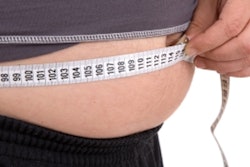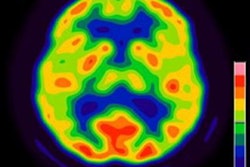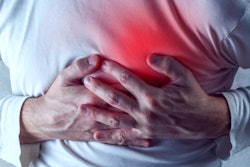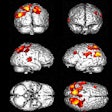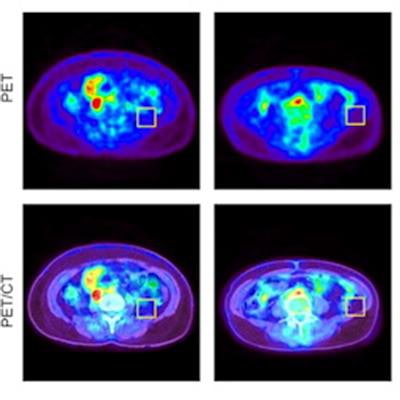
PET scans prior to breast cancer surgery show that patients with higher levels of visceral adipose tissue (VAT) are significantly more at risk for tumor recurrence, according to a study published December 6 in Scientific Reports.
A group at Yonsei University College of Medicine in Seoul, South Korea, investigated survival outcomes in patients with invasive breast cancer based on standardized uptake value (SUV) of VAT using F-18 FDG-PET/CT. Increased VAT metabolism on the scans was associated with poor recurrence-free survival, they found.
"Our results suggest that activated visceral fat metabolism may be a potential clinical target for breast cancer treatment by controlling dysmetabolism and systemic inflammation," the group wrote.
F-18 FDG radiotracer uptake on PET/CT imaging is higher in patients areas with high metabolic activities, such as inflammatory reaction sites and tumors, and recent studies suggest that systemic inflammation affects breast cancer recurrence, according to the authors. Thus, they aimed to measure SUVs of VAT and SUVs of tumors in patients with breast cancer to analyze their clinical implications.
"To the best of our knowledge, this is the first study to report the prognostic impact of VAT metabolism measured using F-18 FDG-PET/CT in patients with breast cancer," the group wrote.
The researchers analyzed PET/CT imaging data of 148 patients with invasive breast cancer (stages I-III; age ≥ 20 years) who underwent surgery between January 2007 and December 2010 at Seoul's Gangnam Severance Hospital. The researchers divided patients into high (n = 73) and low groups (n = 75) according to their VAT (SUVmean) and tumor (SUVmax) metabolism. Clinical characteristics and survival outcomes were compared between the groups.
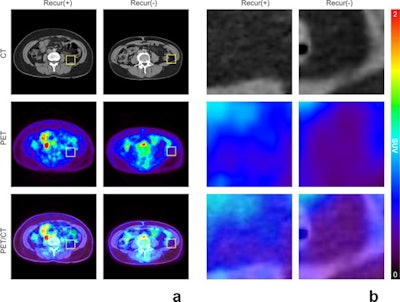 Representative images of (a) F-18 FDG uptake of visceral adipose tissue (VAT) according to the breast cancer recurrence status and (b) their corresponding magnified views. Image and caption courtesy of Scientific Reports licensed under CC BY 4.0 International License.
Representative images of (a) F-18 FDG uptake of visceral adipose tissue (VAT) according to the breast cancer recurrence status and (b) their corresponding magnified views. Image and caption courtesy of Scientific Reports licensed under CC BY 4.0 International License.By the median follow-up duration of 95.5 months, recurrence and distant metastases had occurred in 18 and 14 patients. Among these patients, high SUVmean-VAT was associated with shorter periods before breast cancer relapse.
Specifically, high SUVmean-VAT was associated with poor recurrence-free survival (hazard ratio [HR], 2.754; p = 0.032) and poor distant metastasis-free survival (HR, 3.5; p = 0.019). High SUVmax-tumor was also significantly associated with short recurrence-free survival (p = 0.0388). Tumors with a high SUV tended to have a short distant metastasis-free survival, although this difference was not significant (p = 0.0718), they wrote.
Importantly, there was no significant difference in clinicopathological characteristics between the high and low SUVmean-VAT groups, which suggests further that VAT may be an independent biomarker for survival in these patients, the researchers added.
"Upregulated glucose metabolism in the VAT measured using 18F-FDG PET/CT may be a prognostic biomarker for adverse outcomes in breast cancer," the group concluded.






